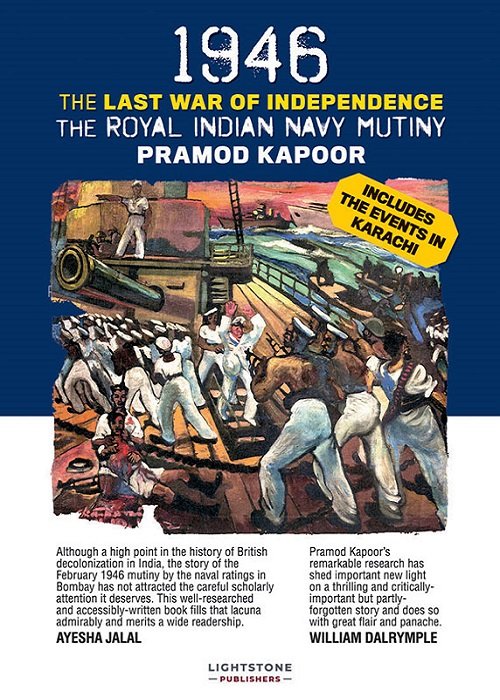
1946 The Last War of Independence
In February 1946, sailors or ratings of the Royal Indian Navy mutinied. They were inspired by the heroism of the Azad Hind Fauj. But their anger was sparked by terrible service conditions, racism and broken recruitment promises. In less than 48 hours, 20,000 men took over 78 ships and 21 shore establishments and replaced British flags with the entwined flags of Congress, the Muslim League and the communists…
Hardback:
350
Published:
2022
₨ 2,100
Description
In February 1946, sailors or ratings of the Royal Indian Navy mutinied. They were inspired by the heroism of the Azad Hind Fauj. But their anger was sparked by terrible service conditions, racism and broken recruitment promises. In less than 48 hours, 20,000 men took over 78 ships and 21 shore establishments and replaced British flags with the entwined flags of Congress, the Muslim League and the communists. The British panicked and announced a Cabinet Mission to discuss modalities of transfer of power. Indian troops refused to fire on the ratings and the mutiny sparked revolts in other branches of the armed forces. People who thronged the streets in support were incessantly fired upon resulting in over400 deaths and 1,500 injured. To quell the rebellion, British commanded powerful warship HMS Glasgow to sail rapidly and ordered low sorties by the RAF fighter planes. In retaliation, the ratings trained the guns mounted on the captured ships towards the shore threatening to blow the Gateway of India, the Yacht Club and the dockyards. As violence escalated, angry telegrams flew between the British Prime Minister’s and Viceroy’s offices. While the communists flamed the ratings, Congress and the Muslim League pushed them to surrender, promising they would not be victimized. After Independence, the governments of India and Pakistan refused to honor those promises. The mutiny caused public disagreements between Gandhi and Aruna Asaf Ali and between Sardar Patel and Nehru. As the last war of independence, it hastened the transfer of power. Yet this seminal event which inspired song, art and theatre has been edited out of the popular narratives of the Freedom Movement.
About The Author

Pramod Kapoor, the founder and publisher of Roli Books (established in 1978), has, over the course of his illustrious career, conceived and produced award-winning books that have proven to be game-changers in the world of publishing. Be it the hit “Then and Now’ series and the seminal Made for Maharajas or the internationally acclaimed Gandhi: An Illustrated Biography which is published in eleven editions in most major languages worldwide.This book is a result of his years of research and deep interest in the period and personalities who have left a mark on the subcontinent’s history.





